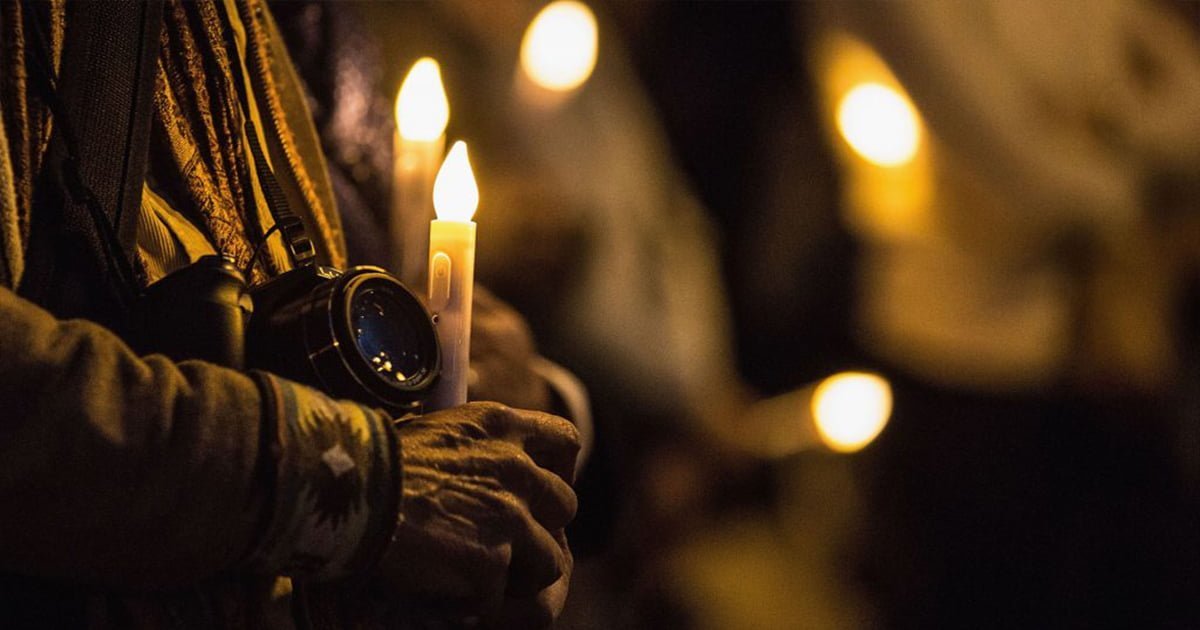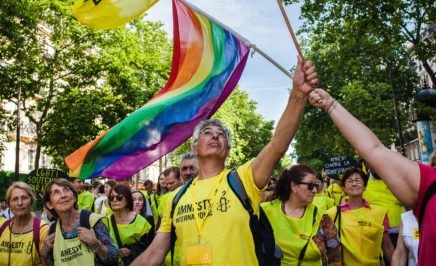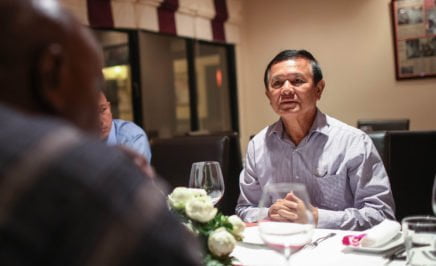Amnesty International is concerned by multiple reports of harassment, intimidation and attacks on human rights organisations, media outlets, and journalists in Sri Lanka.
Amnesty International has received reports that the authorities carried out more than a dozen unscheduled visits to human rights and media organisations between May 2019 and January 2020 that were seen as acts of harassment and intimidation. The targets included human rights organisations, and media outlets, who said they were questioned about their activities by members of the Sri Lankan Police, including the Criminal Investigation Department and the Terrorism Investigation Division, as well as State Intelligence.
Attacks against journalists
According to media reports , a journalist attached to a local daily Lankadeepa, and his family, were attacked on 6 December in Aluthgama, in the South of Sri Lanka. The suspected perpetrators allegedly demanded that the journalist stops reporting around alleged illegal manufacture and trade in toddy.
Local media also reported that on 10 December, the former head of Lake House (also known as Associated Newspapers of Ceylon Ltd.) New Media Division was assaulted by a group of individuals with ties to the ruling political party. He was allegedly threatened not to return to the media-house, which is owned by the government of Sri Lanka.
Harassment and intimidation of human rights organizations
At least twelve cases recorded by Amnesty International indicate that the Sri Lanka Police, including the Criminal Investigation Department (CID) the Terrorism Investigation Division (TID) also known as Counter-Terrorism and Terrorism investigation Division (CTID), as well as officials with State Intelligence, have visited the premises of, or summoned members of human rights organizations, making enquiries around project activities, donors and funding information, registration, and details of staff members.
The reports indicate that such visits have occurred for several months over 2019, spilling into 2020, in different parts of the country including in the Northern, Eastern and Western Provinces on an ad-hoc and arbitrary basis since May, however more systematically particularly in the Western Province since November 2019. This trend of information gathering by different law enforcement agencies serve as a form of harassment and intimidation , and must be seen in the context of attacks, surveillance and harassment of Human Rights Defenders (HRDs) that Amnesty International has documented as having occurred intermittently for several years. Such harassment and intimidation has a chilling effect by way of suppressing dissent, creating fear in organizations and individuals defending and promoting human rights about the start of a crackdown, and may amount to reprisals for their work.
Sri Lanka has an international obligation to protect HRDs under a number of international human rights treaties including the International Covenant on Civil and Political Rights (ICCPR) to which it is a state party. The Covenant guarantees the right to freedom of peaceful assembly, association and expression.
Search of media outlets and summons on journalists
Media reported that on 26 November, the Police conducted a search of Newshub.lk, a media organization, using an expired search warrant . The police reportedly searched the organization’s electronic equipment and servers for defamatory content on the new President Gotabaya Rajapaksa.
Two journalists with TheLeader.lk and Voicetube.lk were summoned to the CID in November and questioned at length. The Editor of Thinnapuyal was also reportedly questioned by the Police in November in Vavuniya in the Northern Province.
The Police searches and summons of media organizations and journalists, especially in the immediate aftermath of Presidential elections, amount to curtailment of the right to freedom of expression and media freedom guaranteed under the ICCPR.
RECOMMENDATIONS
Amnesty International urges the government of Sri Lanka to:
- Respect, protect, promote and fulfill the rights to freedom of expression, peaceful assembly and media freedom including by ensuring a safe and enabling environment in which media houses, journalists, human rights organizations and defenders are protected, can work effectively to defend and promote human rights without fear of reprisal;
- Immediately issue instructions to all branches of law enforcement to end tactics calculated to intimidate HRDs, human rights organizations, media houses and journalists around the country, including surveillance, and reprisals against them;
- Conduct an impartial, thorough and effective investigation into the allegations of intimidation and harassment of HRDs, human rights organizations, media houses and journalists and hold to account anyone suspected to be responsible for violations and abuses.
BACKGROUND
The period covered by the statement follows the horrific Easter Sunday attacks on 21 April 2019 that claimed the lives of more than 250 people and injured hundreds in three churches and three hotels in Sri Lanka.
Sri Lanka held Presidential elections on 16 November 2019, where Gotabaya Rajapaksa was elected President. President Gotabaya was the Secretary to the Minister of Defence, his brother Mahinda Rajapaksa, during the end of the war in Sri Lanka where the government of Sri Lanka and the LTTE are accused of grave human rights violations and abuses, including enforced disappearances and torture.
A month into the new government led by President Gotabaya, there has been a report of a case of alleged detention of a local employee of the Swiss embassy in Sri Lanka, which the government has dismissed as being fabricated. More than 700 criminal investigators, some of whom were involved with key cases of human rights violations, were banned from traveling abroad. The new government promoted and appointed several military officials to positions of power despite being named in the OHCHR investigation on Sri Lanka. Against this changing political landscape, several incidents of backlash have also been reported, targeting lawyers, government actors and civil society activists.
On 12 December, President Gotabaya stated that media freedom will not be hindered in any form during his tenure. He further stated, “Opportunity is available for any reasonable criticism”, adding that he expects every media institute to fulfill its obligation towards the country while engaging in favourable media reporting to uphold the country’s reputation.




